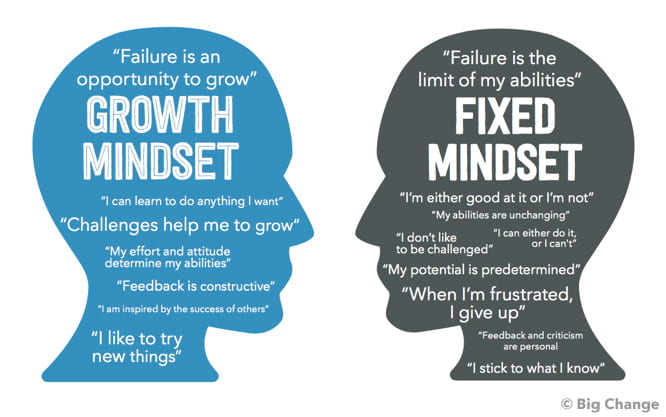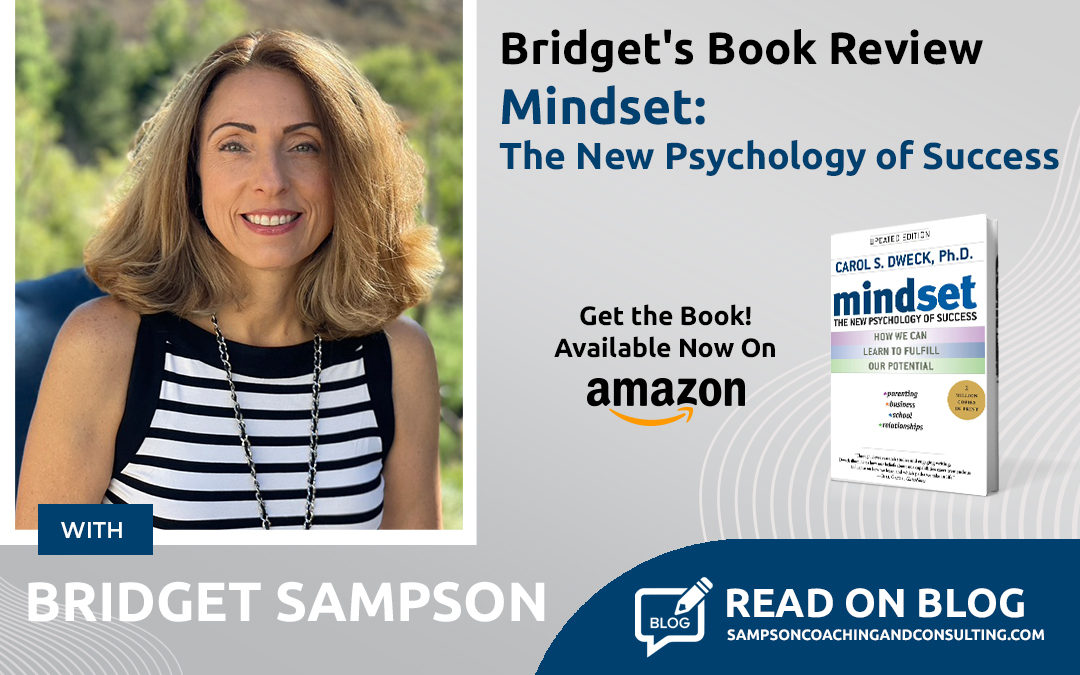When I first read Mindset: The New Psychology of Success several years ago, it completely shifted my ideas about learning, growth, failure, and success. Now, I re-listen to the audiobook about once a year to remind myself of the many ways to strengthen my own growth mindset and those of the people I train and coach.
The author, Dr. Carol Dweck, professor of Psychology at Stanford, is highly regarded for her paradigm-shifting work on mindsets. The powerful research and claims in her bestselling book influenced many of us to change the way we think about our own and others’ abilities.
Dr. Dweck taught us that having a fixed mindset means a person isn’t open to learning and thinks things should come easily. The fixed mindset person wants praise for natural talent and doesn’t want to work hard to develop skills. Growth mindset thinking involves being hungry to learn new things, even when it’s hard, and persistence despite early failures. The growth mindset person has a stronger desire to keep progressing than to constantly be praised for their existing skills and abilities.
My own personal and professional experiences validate the growth mindset research. When I stay focused on what’s possible if I put effort into continuous learning and powering through growing pains, I can accomplish things I previously thought I wasn’t capable of. This has included everything from starting two podcasts and keeping my business thriving during a pandemic to maintaining a healthy weight and repairing strained relationships.
Working on constantly strengthening your growth mindset for the rest of your life will serve you in ways you can’t imagine now. I had never realized what a fixed mindset I had around gender identity and sexual orientation until I was stunned by my then nineteen-year-old daughter’s announcement that she is transgender and bisexual. My growth mindset was stretched like never before as I began a new educational journey that would ultimately lead my daughter Jackie and me to found Transgender School, an LGBTQ+ education and advocacy program, so that we could teach others the life-saving information we had learned together over four years.

Here are 3 ways you can start to build your growth mindset immediately.
1. Value and praise effort more than innate talent.
Whether it’s the self-talk in your own mind about a project you’re working on or the way you offer feedback to your kids or employees, express recognition of hard work, resilience, grit, and persistence as much as possible. Dr. Dweck’s research proves that consistent praise of natural talent, or how easy it was for someone to achieve a goal, can impact future motivation negatively. If a child or team member is frequently told that they are “a natural” (e.g., at sports, math, writing, leadership, etc.) and that it’s great that it all came so effortlessly, they’ll internalize the idea that those who work hard to build a skill are inferior.
2. View failure as a learning opportunity.
Fixed mindset folks go to great lengths to avoid risking failure and to hide any failures they experience. This clearly limits growth and progress. Growth mindset people are able to bounce back when things don’t go according to plan, analyze what happened, and make improvements in subsequent attempts. In the fixed mindset, failure is a sign that natural talent is not there, never will be, and giving up is probably the best option. For a growth mindset individual, failure is a signal to try something different, keep pushing through, and seek feedback from others who may have helpful insights.
3. Always be a beginner at something.
What have you always wanted to try but assumed you’d be no good at? Surfing? Painting? Coding? Playing the guitar? Learning to speak Japanese? A fixed mindset convinces us that we’re either naturally good at something or not, and that we should stick to the things we know we excel in. In other words, you should play it safe, otherwise, you may be revealed to the world as less of a genius than you like to believe you are and portray yourself to the world as. Growth mindset people thrive on extremely challenging new pursuits that may cause them to fall flat on their faces, sometimes publicly, but it’s all worth it for the opportunity to grow and enjoy the thrill of mastering more of life’s endless opportunities and adventures!


Recent Comments